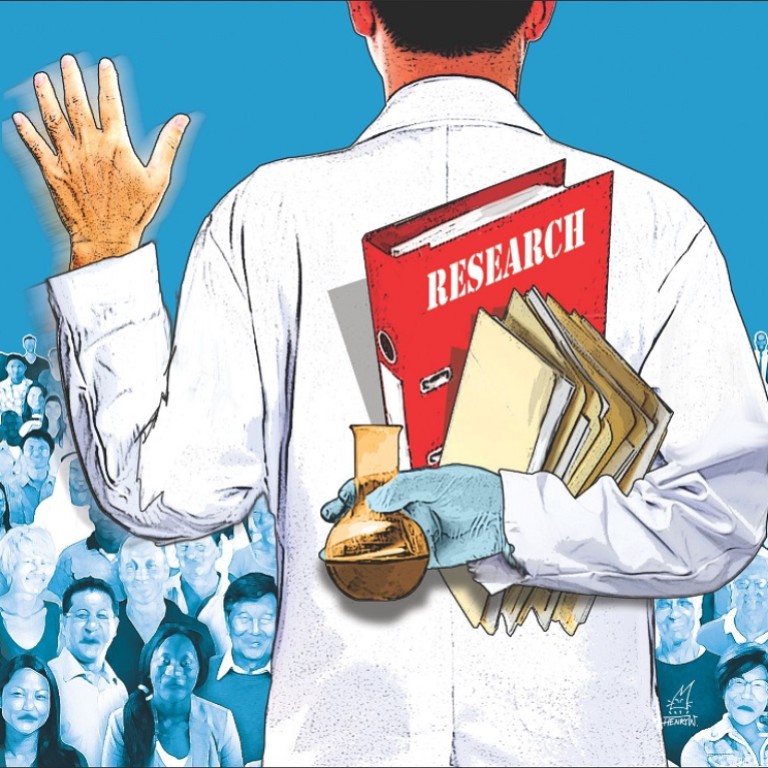
Scientists harassed by corporations to reveal information on their research
Activists and corporations are increasingly using public information laws to intimidate researchers into disclosing data that should be confidential
In 2009, a law firm representing multinational Philip Morris submitted freedom of information requests to the University of Stirling in Scotland for the work of three scientists who were studying the impact of tobacco marketing on adolescents.
They sought all primary data, questionnaires, handbooks and documents relating to the work of researchers Gerard Hastings, Anne Marie Mackintosh and Linda Bauld - much of which was confidential.
Although the requests were eventually dropped due to negative publicity, responding to and challenging them cost the scientists and the university's lawyers many weeks of work.
"The stress of all this is considerable," the scientists involved, wrote afterwards. "We are not lawyers and, like most civilians, find the law abstruse and the overt threat of serious punishment extremely disconcerting."
This was no isolated incident. Activists and corporations of all political stripes in a growing number of countries are increasingly harassing and intimidating university scientists, using public information laws originally designed for citizens to understand the workings of government.
In an editorial in magazine, climate scientist Michael Mann explored this problem and asked: how do we balance public accountability with the privacy essential for scientific inquiry?
The rise of electronic communication means that the process of science is now recorded more than ever before. Conversations that used to happen in person or over the phone take place via email. This allows scientists to collaborate more easily across time zones and continents. It also means that much of the research process is written down and is therefore easier for outsiders to attempt to scrutinise.
Scientists who helped fix the 2010 Deepwater Horizon oil disaster in the Gulf of Mexico outlined the problem when their email correspondence was subpoenaed by BP.
"Our concern is not simply invasion of privacy, but the erosion of the scientific deliberative process," they wrote.
"Deliberation is an integral part of the scientific method that has existed for more than 2,000 years; email is the 21st century medium by which these deliberations now often occur."
To be sure, transparency is essential to protecting the independence of public institutions, including universities.
In 2013, for example, faculty at Florida State University discovered through Florida's open records law an agreement that inappropriately gave the Charles Koch Foundation control over the hiring of economics professors and curriculum content. University of Kansas students are seeking information about similar alleged Koch influence on their campus.
But scrutiny beyond funding disclosure can be disruptive and discourage scientists from pursuing policy relevant research. In too many places, those who disagree with a professor's research or line of inquiry are seeking all information in his or her university's possession, sometimes including handwritten notes.
, a report published by the Union of Concerned Scientists, describes this problem in detail, examining cases of environmental chemists and public health scientists and law professors who were at the receiving end of these requests.
Since then, the high-profile requests have kept coming. In February, an anti-GMO group asked four universities for extensive correspondence of 14 biologists. In March, the West Virginia Supreme Court heard oral arguments in a case where a mining company is seeking 216,000 documents related to the work of an occupational health scientist at West Virginia University.
Although some universities and researchers are pushing back against these pressures, levels of privacy protection vary by region, state and nation. This can create competitive advantages for universities in places that protect faculty communication, to the detriment of peers.
Scientists at protected institutions may have become hesitant to work with their colleagues at non-protected institutions.
The Virginia Supreme Court found in 2014 that excessive disclosure could cause "harm to university-wide research efforts, damage to faculty recruitment and retention, [and] undermining of faculty expectations of privacy and confidentiality".
So what should be disclosed, and what should be kept secret? As a general rule, scientists should make public their sources of funding, and state whether there are any strings attached to that funding. Spending records are fair game. But documents related to the research process should stay off limits.
Yet where do you draw the line? More scientists are demanding common disclosure standards that put all scientific institutions - public and private - on a level playing field. Some say national academies of science should take up this charge, working with learned societies, university associations and others. UCLA's Statement of the Principles of Scholarly Research and Public Records Requests provides one such standard.
Unless something effective is done, the Union of Concerned Scientists says scientists would waste far too much time and money on litigation that should be spent on science and discovery. It warns public trust in science would suffer as a result.
